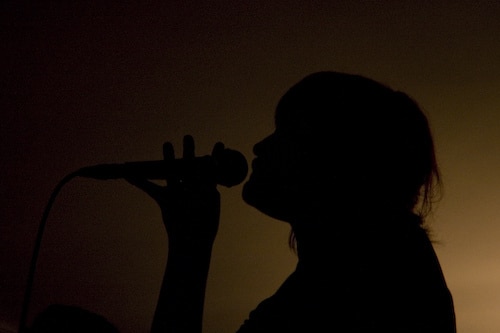People keeping track of what’s funny in China will often bring up the name of Guo Degang, one of the most popular comedians in the country right now. Guo is particularly interesting to me because he is a Xiangsheng artist, and is perhaps single-handedly responsible for keeping the art form firmly in the public eye. His success has ensured Xiangsheng’s continued role in television galas broadcast nation-wide.
So I was surprised and intrigued to see a headline pop up on my Weibo (Chinese Twitter) feed: “Guo Degang’s Failed Performance: Other than not being funny, nothing went wrong.”
The piece turned out to be a video detailing Guo and his partner Yu Qian’s pieces from this past February as well as their more recent shows. Guo was criticized for choosing uninteresting topics for his pieces—satirizing waste and excess. In many of his jokes he would boast about being a big spender, only to give examples such as buying omelettes with three eggs in them instead of one. My personal opinion is that young Chinese, who pointing out expensive watches and cars (often of government officials) as forms of waste and excess, might have thought that Guo had an opportunity to go much farther than he did.
In his own defense, Guo has in the past expressed frustration with the major galas, because of the tight restrictions on topic matter and jokes due to censorship rules. Guo, as well as my mentor David Moser, were cited in the New York Times discussing the controlled nature of Xiangsheng on its largest stages.
Indeed, the video from Weibo also noted that an early version of the program for the gala’s event listed Guo’s performance not as “Spendthrift” but rather as “Seeking Happiness,” another as-of-yet unperformed piece. Guo mentioned that “Seeking Happiness” was not ready to be performed, but I wonder if “not ready” in this case meant “not allowed.”
He was further lambasted for his two most recent performances, “Spendthrift” and “Good Friends”, sharing large amounts of content. The Weibo video said sharing the content was uncreative, but Guo countered by saying that people like old material along with the new. “If I were to perform something like “Reporting Restaurant Dishes (Ed: a very old but well-loved routine), I could sell out thirty days in a row.”
This reminded me of one of the reasons that Da Shan, the Canadian famous for learning Xiangsheng, told me that he began to lose interest in performing live Xiangsheng. “I would be studying, improving myself, working hard to get better, but performance venues would still ask me to perform the same pieces that I had been performing last year.”
The audiences wanted to hear the old pieces over and over again. But doesn’t the outcry against Guo’s performance seem to imply the exact opposite?
My personal feeling is that there seems as though there is a conflict between the old style of Xiangsheng performance—a generational gap of sorts. The people who were watching Da Shan and older pieces like “Reporting Restaurant Dishes” were accustomed to consuming Xiangsheng in teahouses, drinking green tea complete with floating leaves in the cup and munching sunflower seeds. Some places, like Lao She’s teahouse in Beijing, still have these performances, which I have attended along with my Master and our troupe.
But when I go to Lao She’s, I am by far the youngest person in the audience. Guo’s fans are younger, used to massive amounts of new content being thrown at their smart phones and tablets from all directions. Even watching the galas on television is a trite exercise for them. And if Guo doesn’t put out new content, then someone else—be it a made-for-web TV series or the latest winner of one of the many talent show programs—will.
It’s incredibly interesting to me to find out what Chinese people think is not funny, because as much as comedy has a great power to bring people together, it is in many ways a double-edged sword. What is more embarrassing than telling a joke that not only fails to make other laugh, but in fact offends? Comedy and humor are powerful social constructs and are just as able to wound as any other societal force. So while I will continue to watch Guo Degang’s pieces closely, I will now be careful to keep an eye on when he gets laughs—and when he doesn’t.


